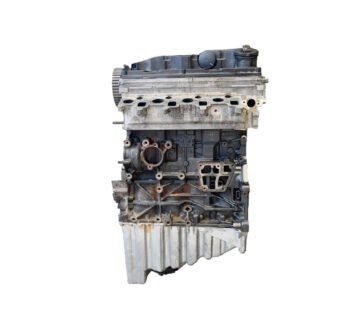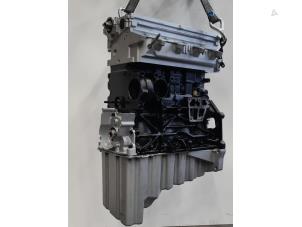Essential Factors To Consider and Tips for Choosing the Right Engine for Your Demands
Selecting the right engine is a diverse choice that needs careful consideration of different aspects to guarantee optimal performance for your specific needs - amarok engine for sale. Comprehending your desired application is paramount, as the demands of business, industrial, or leisure use will significantly influence your option. Additionally, reviewing crucial specs such as torque, fuel, and horsepower efficiency, alongside upkeep needs and spending plan constraints, will certainly guide you toward a sustainable investment. However, the intricacies of engine selection extend past these basics, prompting a better exam of critical aspects that can inevitably impact your fulfillment and success.
Determine Your Function
Identifying your function is a crucial first step in selecting the appropriate engine for your demands. Recognizing the certain application you want will certainly guide your decision-making procedure and make certain that you select an engine that aligns with your operational needs. Whether you need an engine for a commercial vehicle, industrial machinery, or an entertainment job, each scenario demands various performance characteristics and capacities.
Take into consideration the atmosphere in which the engine will run. Will it undergo heavy loads, severe temperature levels, or extended use? Analyzing these elements will assist you identify the needed power result, fuel efficiency, and durability required to fulfill your purposes.
In addition, consider the long-lasting effects of your choice. Budget plan restrictions, upkeep requirements, and availability of parts are important considerations that will impact your overall satisfaction and operational efficiency.
Inevitably, articulating your objective will simplify the choice process and encourage you to make a notified decision. By plainly defining your purposes, you can evaluate prospective engines better and pick one that not just fulfills your current needs but likewise sustains your future objectives.
Evaluate Engine Specifications
Once you have plainly expressed your purpose, the next step is to evaluate engine specs. This procedure involves a comprehensive assessment of numerous technological details that can substantially impact performance and suitability for your intended usage.
Begin by evaluating the engine's horse power and torque scores. Horsepower is important for figuring out the engine's capacity to do work, while torque is vital for recognizing how well it can handle hefty loads or acceleration. Furthermore, take into consideration the engine displacement, as it often correlates with power result and effectiveness.
Next, examine the engine typeâEUR" whether it is a fuel, diesel, or alternative fuel engineâEUR" as each type has unique attributes and applications. Focus on the engine's configuration (e.g., inline, V-type), as this can affect dimension, weight, and total performance.
Another vital facet is the engine's air conditioning system, which can affect integrity and maintenance requirements. Lastly, review the supplier's credibility and service warranty offerings, as these can offer understandings right into long-lasting efficiency and support. Thoroughly examining these specs will certainly assist ensure that you select an engine that aligns with your particular requirements and operational goals.
Consider Fuel Efficiency
Gas effectiveness is an important element to consider when selecting an engine, as it straight influences operational costs and environmental sustainability. An engine's gas efficiency is usually gauged in miles per gallon (MPG) for cars or in certain gas consumption (SFC) for airplane and aquatic engines. Greater fuel efficiency not just minimizes the quantity of fuel eaten but likewise lessens greenhouse gas exhausts, making it a liable selection for eco-conscious customers.
When examining engine options, it is necessary to assess the driving problems and intended usage. Engines enhanced for freeway driving might display far better gas effectiveness contrasted to those developed for stop-and-go web traffic. Furthermore, take into consideration the engine's innovation, such as turbocharging or hybrid systems, which can considerably boost fuel effectiveness.

Assess Maintenance Needs

Begin by evaluating the manufacturer's advised upkeep periods and treatments. Some engines may require even more regular oil adjustments, filter substitutes, or specialized maintenance, which can influence your functional downtime. In addition, think about the accessibility of parts and the convenience of getting them. Engines with extensive appeal normally have better components accessibility, lowering lead times throughout fixings.
Another vital aspect is the technological experience needed for maintenance. Some engines may demand customized training for technicians, which can limit your choices for provider. Moreover, evaluate whether the engine's design websites permits simple access to elements commonly view publisher site needing maintenance, as this can significantly impact labor costs.
Spending Plan Your Investment
Recognizing maintenance demands is just one facet of choosing the ideal engine; economic factors to consider play a similarly important role (amarok engine for sale). Developing a clear budget is essential, as it influences not just the first acquisition rate but additionally lasting operational expenses
When budgeting, take into consideration both the recurring costs and in advance prices such as gas efficiency, upkeep, and possible repair work. An apparently budget-friendly engine might sustain higher prices over time due to poor fuel economic situation or regular upkeep demands. In addition, assess the accessibility and price of spare parts, in addition to the service warranties offered by manufacturers, which can give economic protection versus unanticipated expenses.
It is also a good idea to consider potential financing options or renting setups, which can alleviate prompt monetary concerns. Stabilize your need for sophisticated attributes with your budget plan restraints, making certain that you buy an engine that meets your performance requires without compromising financial stability.
Eventually, a well-shaped budget will empower you to make informed decisions, aligning your engine choice with both your functional requirements and financial capacities, leading to a more sustainable financial investment over time.

Verdict
In verdict, picking the appropriate engine necessitates a complete understanding of certain demands and applications. Careful evaluation of engine requirements, gas performance, and upkeep needs is essential for informed decision-making.
Fuel performance is a vital aspect to consider when picking an engine, Find Out More as it straight affects operational costs and environmental sustainability. An engine's gas performance is commonly gauged in miles per gallon (MPG) for vehicles or in specific gas usage (SFC) for airplane and aquatic engines. Diesel engines normally provide far better gas performance than gas engines. Eventually, picking an engine with a strong focus on fuel efficiency can lead to significant long-term savings and contribute positively to ecological efforts. Careful examination of engine requirements, fuel efficiency, and upkeep needs is important for informed decision-making.